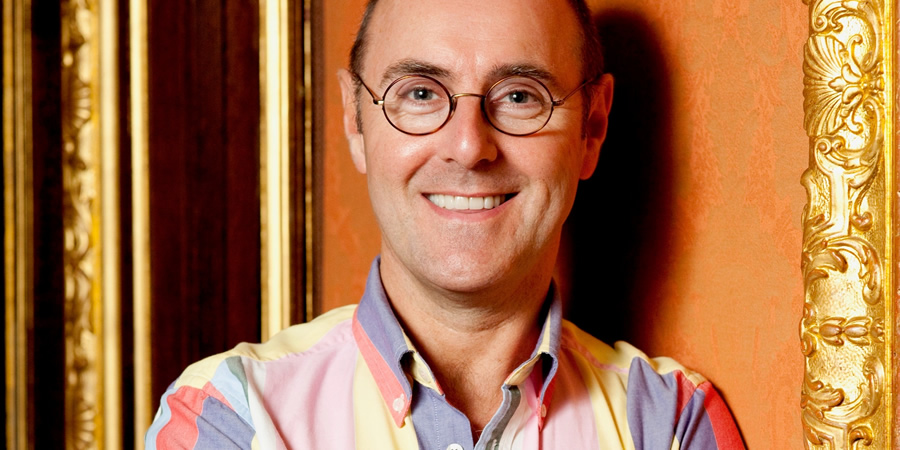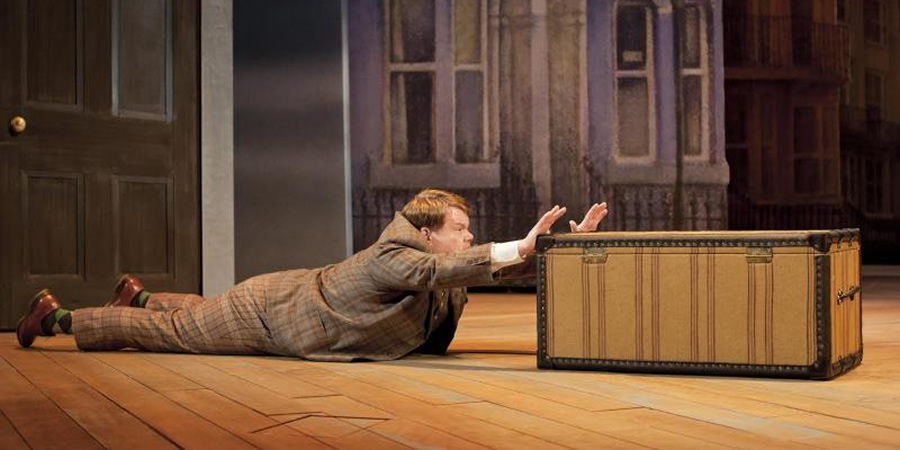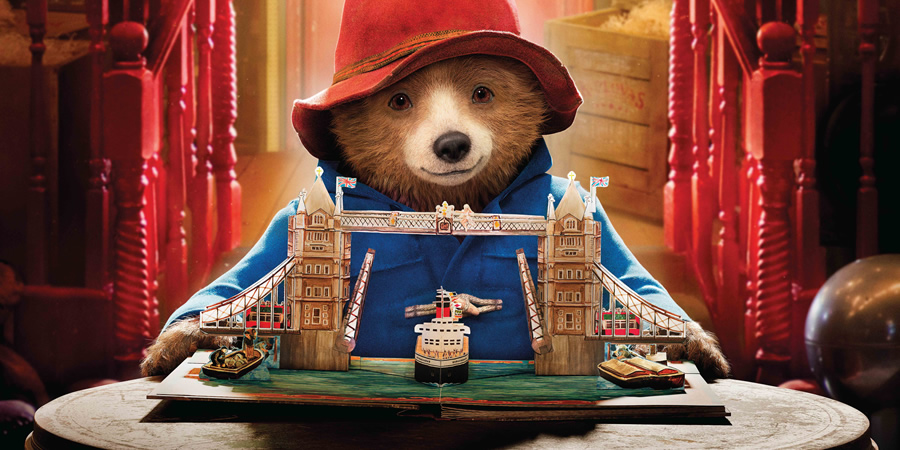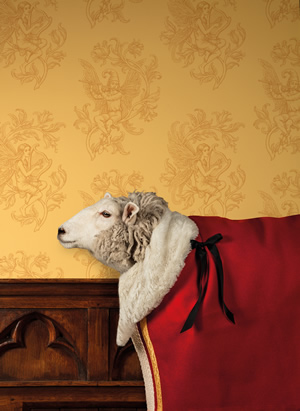Cal McCrystal interview

We chat to Cal McCrystal, the award-winning comedy director, writer and performer who is now turning his attention to the English National Opera.
Hi Cal. Could we start by asking you to give readers a rough outline of your career to date?
I trained as an actor at The Royal Scottish Academy of Music & Drama (now The Royal Conservatoire of Scotland). On graduation I went straight into a two year contract appearing in young people's programmes for Yorkshire TV.
Over the next 12 years I worked mostly in theatre but did a fair bit of Saturday Morning telly plus a few sitcoms, radio series and the occasional movie. I was very lucky at getting TV ads and this funded a lot of badly paid repertory work.
I had done some clown workshops with Philippe Gaulier and he cast me in a show he was planning for the Edinburgh Fringe and a national tour. It was from this show that I started getting offers of directing work. I was hesitant at first but gained confidence when the shows were very well received.
There was a scout from Cirque du Soleil in the audience when a show that I made for Spymonkey [theatre company] was playing at the Queen Elizabeth Hall. He found me afterwards and asked how I was able to make an audience laugh for 90 minutes without stopping. Next thing I know I am on a plane to Montreal as Comedy Director for their new show, Varekai. I managed to make funny routines for this show (no mean feat at Cirque) and was asked to collaborate with them again on their latest Las Vegas production, Zumanity, for which I brought in Spymonkey to perform the comedy acts.
Cirque is probably the worst environment to try to make comedy. You have to work against all their plastic poetry. But we had a lot of fun in Vegas.
Career highlights have been One Man, Two Guvnors; my long association with Spymonkey; working on big movies (particularly The Amazing Spider-Man 2 and Paddington 1 & 2); directing Sasha Baron Cohen as host of the 2005 MTV Awards; Don Quixote at the RSC; directing in the USA, Mexico and for Sadlers Wells in Havana - and being director of Giffords Circus for the last 7 years (bliss!).
In the early days you worked with John Oliver and Richard Ayoade. Was it clear even back then they would go on to become huge comedy stars?
It was very clear to me that they were major talents. In those days they were writing partners and had planned a career together writing and performing comedy. They were signed by a major talent agent while we were at the Edinburgh Fringe.

What was it like to be involved in the whirlwind that was success of One Man, Two Guvnors?
One Man, Two Guvnors was a blast. Nick Hytner gave me a pretty free hand with many elements of the show.
I think everyone was astonished by the reaction at the first preview. Nick told me that night it would transfer to the West End. I think I was the least surprised. I had been dying to get my hands on that audience for 20 years. By press night we were already talking to Broadway producers.
Going to Broadway was a dream come true. There were comedy legends and Hollywood superstars in the audience every night. What a ride!
Can you tell us more about why you moved away from acting and more into directing?
I was very happy as an actor and could never imagine myself doing anything else. After appearing in a clown show directed by Philip Gaulier in 1990 I started to get offers from some of the new physical comedy companies that were beginning to form. The first show I directed was for the clown troupe Peepolykus. It was a big hit at the Edinburgh Fringe and this led to more offers from companies such as Cambridge Footlights, Spymonkey, Pluck and The Mighty Boosh. For my first few years directing I was still prioritising my acting work but as I got more confident as a director I missed performing less and less.
What skill set do you think you need to be a good director?
I think having been an actor gives an invaluable insight into how performers think and approach things. If you can get people to like and trust you they will go the extra mile and take risks.
Psychology and emotional intelligence play a huge part. I am a very performer-centred (rather than text based) director and always want to bring the best out of the cast. To me, it is vital that rehearsals are fun. This pleasure will then get transmitted to the stage.
I am very good at blocking, a result of training at a very traditional drama school where stagecraft was drummed into us. This means I can get through the whole play in a week then spend the rest of the rehearsals running, altering and layering in detail.
Some of your work involves focusing on physical comedy...
I never set out to make my shows physical, they just turn out that way. I always try to match the comedy I create to the performer's personalities and abilities.
It's important to know the value of timing and how it works. I like working on detail and can be very fussy about this. In his book, Nick Hytner calls me a precision engineer. The difference between getting a laugh or not can be just where you take a breath. Safety is important. I demonstrate every stunt myself to make sure it is do-able.

Perhaps we could get a specific example of your Physical Comedy Consultant role: You worked on Paddington and the recently BAFTA-nominated Paddington 2. What was your remit in these films?
Paul King, who I had met when I was working with Cambridge Footlights, asked me to help create the character of the bear and devise the physical comedy for the first movie. I did some motion capture for Paddington's facial expressions, made suggestions for script changes and brainstormed ideas with the creative team. My role on the second movie was pretty much the same - plus I was given a small cameo as Sir Geoffrey Wilcott, which I very much enjoyed. Just like old times!
If you were to give some tips to any aspiring comedy actors reading this... what do you think they should concentrate on?
The best thing to do is try some stand-up or street performing. You learn a lot when the audience can just turn round and walk away at any moment. It's great for creating a relationship with your audience and finding who you are as a performer. I also recommend the Philippe Gaulier school.

We're talking today, as you're now working with the English National Opera on a new project. Could you tell us more about that?
Last year Daniel Kramer asked me to choose a Gilbert & Sullivan for the ENO. I thought Iolanthe would be a perfect match for me. It's wild, romantic, silly, camp and not too dependent on satire.
It's a very large scale production. Lavish sets and costumes, big props, fantasy creatures, magic, flying and a cast of 50. I haven't done a big musical before so there are challenging elements.
Although it's an opera in an opera house(!), I am treating it as I would any show I have done. It's full of gags and mischief.
Opera has a bit of a reputation for being rather serious, and only for those who can turn up in black tie to watch it. Do you think staging Iolanthe will help change that image?
I hope so. We are certainly not doing a museum piece of period operetta. There are some subversive elements to this production. I am really keen to get a young crowd in to see Iolanthe. Laughter makes a show interactive. It's true there is a lot of snobbery in the opera world and Gilbert & Sullivan have some ferociously possessive fans. I am trying to make a show that all will enjoy but I know I may cause a few raised eyebrows.
How are rehearsals going?
Rehearsals are a blast. There has been lots of laughter in the room from day one. The biggest challenge has been the limited access I have to the 40 strong chorus. ENO have given me as many sessions as they can but as it is a rep company I have them for only a few hours a week.
Choreographer Lizzi Gee and I are ambitious for the show to have a lot of movement and dancing in it so the chorus sessions are usually given over to learning steps. I buzz around adding detail and bringing out characters. I have seen too many operas where the chorus just walk on, sing and walk off. I want our chorus to steal the show.
Help us publish more great content by becoming a BCG Supporter. You'll be backing our mission to champion, celebrate and promote British comedy in all its forms: past, present and future.
We understand times are tough, but if you believe in the power of laughter we'd be honoured to have you join us. Advertising doesn't cover our costs, so every single donation matters and is put to good use. Thank you.
Love comedy? Find out more